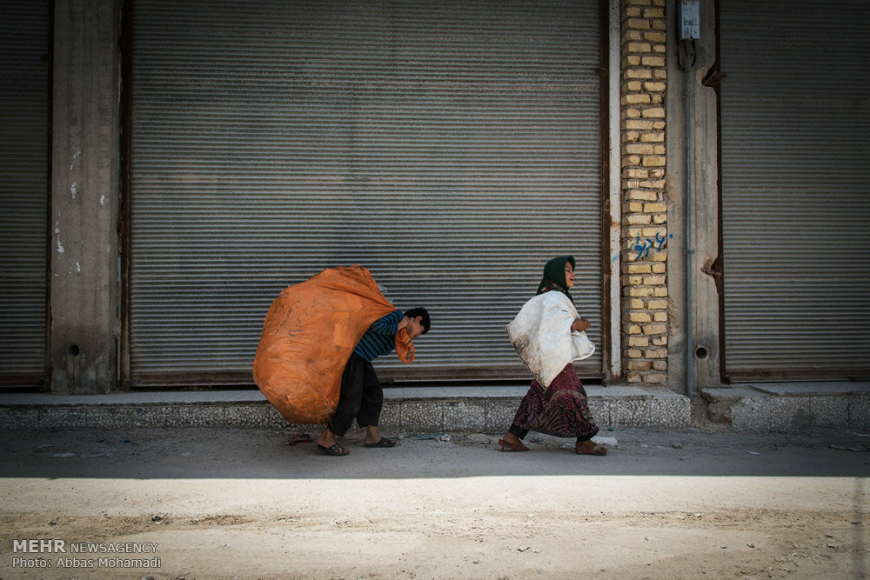May 18, 2018
Anoushirvan Mohseni-Bandpei, the director of the State Welfare Organization (SWO), has outlined a plan for rounding up and deporting Afghan children who beg, peddle goods or work in the streets of Tehran.

“The Ministry of Foreign Affairs is working with two Afghan officials to identify and locate these children,” Mr. Mohseni-Bandpei said. “The underage (18 and younger) foreign workers peddling goods in the streets have defaced the city. The families of those children who have been detained by the SWO three times or more may lose custody of them. Those children will be placed in our care.”
The proposal to round up underage workers was approved in August 2017 by Tehran City Council, the SWO, and the police department, but it had not been implemented until now.
The deputy director of the SWO, Habibollah Massoudi-Farid, explained: “The Foreign Ministry and the Interior Ministry’s Office for Social Affairs discussed the plight of Iranian and foreign underage workers. Everyone agreed that a workable solution had to be found to this problem. The Bureau for Aliens and Foreign Immigrants Affairs is spearheading this project.”
Mr. Massoudi-Farid said: “Given that most of these underage workers are from neighboring Afghanistan, two officials from the Afghan embassy in Tehran will help us to locate and identify these children. The Bureau for Aliens and Foreign Immigrants Affairs must determine if the families of these children hold residence permits or entered Iran illegally. Those parents who legally reside in Iran will be held accountable for sending their children into the street to beg, peddle goods or work. The SWO is currently caring for 120 children whose parents or next of kin have not been identified or located.”
“Many of these children work illegally at unlicensed workshops. They suffer greater abuse and hardships at these places than if they were working in the streets,” Massoudi-Farid noted. “We must gain the trust of these children instead of frightening them into hiding. The family and child protection agencies must contact the parents who in turn would bring their children to the attention of the relevant authorities. By building trust, we will be able to protect these children.”








